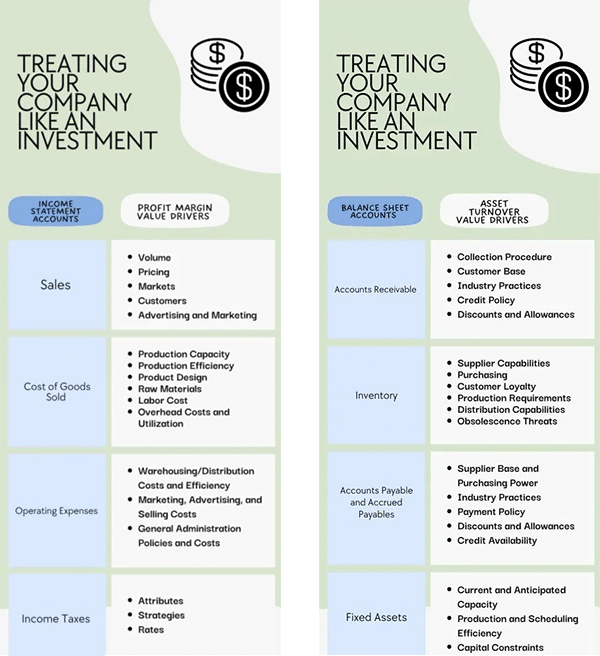August 17, 2022
Why Businesses Should be Treated as Investments

Are you a business owner? Here's what you can do to correctly evaluate the value of your company.
A business is typically its owner’s largest and most complex investment. It is also a fundamental piece of their personal retirement plan. But what if the business owner’s perceived value of the company does not reflect its true value? This could derail their personal retirement plan and their future lifestyle.
Unfortunately, this happens often because businesses are rarely evaluated properly for several reasons:
- Business owners may not know their company’s true cash return because of tax planning or other techniques that disguise its true performance.
- Investments in the business are often considered as amounts the owner paid years ago. In addition, most investments are shown at the book value of assets or shareholders’ equity. For a profitable business, this does not consider any intangible assets or goodwill value, which may represent a significant amount of the overall value.
- Many business owners may not fully understand how to translate their company’s risk into a commensurate rate of return on their investment.
- When business owners fail to correctly calculate their expected returns and quantify risk, it’s difficult to know the current fair market value of the business. As a result, they may make decisions based on incorrect or incomplete information or miss major opportunities.
The value of a business can also vary depending on its owner’s circumstances and goals. If selling the business to a third party, the owner would expect to receive a maximum purchase price. However, the sale of that same business to a family member or employee might need to be structured so that the company’s cash flow can support the purchase price and make payments to the owner.
Many business owners have heard the rule of thumb that sales of companies are typically three to five times its earnings before interest, taxes, and depreciation (EBITDA), though many don’t investigate why. By taking steps ahead of a potential sale, they may discover the business is actually worth twice its EBITDA or—much better for the owner—seven times its EBITDA. Knowing this can help business owners focus on techniques to boost earnings and reduce risk, which would justify a higher EBITDA multiple.
To create value, business owners should consider the various value drivers of profit margin and asset turnover, shown in the tables below. In addition to focusing on these value drivers, business owners should benchmark their company against similar-sized companies within their industry—as investors do when making investment decisions. Proper comparisons can drastically improve a company’s operations and cash flow.

While many investors have close to instant access to the value of their personal investments, this is not available to most business owners. It takes time to understand the value of a business, what drives and impacts value, and how to enhance it. In addition, too many business owners tend not to treat their business like an investment. For example, if a part of your personal portfolio fails to accomplish what you intended it to do, you’d adjust that investment accordingly. But what if your business isn’t generating an adequate return? Similarly, business owners can explore their options for adjustments that will lead to greater value.
Fortunately, really understanding what your business is worth can be easily accomplished through regular business valuations. Conducting one each year can help identify the true value of the business, track the performance over time, and identify critical factors and techniques that have a direct impact on enhancing its value.
Regular valuations also help a business owner’s financial team—including wealth advisors, accountants, and attorneys—design a streamlined, holistic plan that accurately incorporates their personal and business finances. Of course, planning for the disposition of the business itself will add clarity to their overall roadmap for retirement.
This commentary originally appeared August 17, 2022 on thestreet.com.
This article is for general information and educational purposes only and is not intended to serve as specific financial, accounting, legal, or tax advice. Individuals should speak with qualified professionals based upon their individual circumstances. The analysis contained in this article may be based upon third-party information and may become outdated or otherwise superseded without notice. Third-party information is deemed to be reliable, but its accuracy and completeness cannot be guaranteed. Neither the Securities and Exchange Commission (SEC) nor any other federal or state agency have approved, confirmed the accuracy, or determined the adequacy of this article. R-22-4086
© 2022 Buckingham Strategic Wealth®
Category
Business OwnershipContent Topics
About the Author

Charles Laverty, Jr.
Director, Business Solutions
